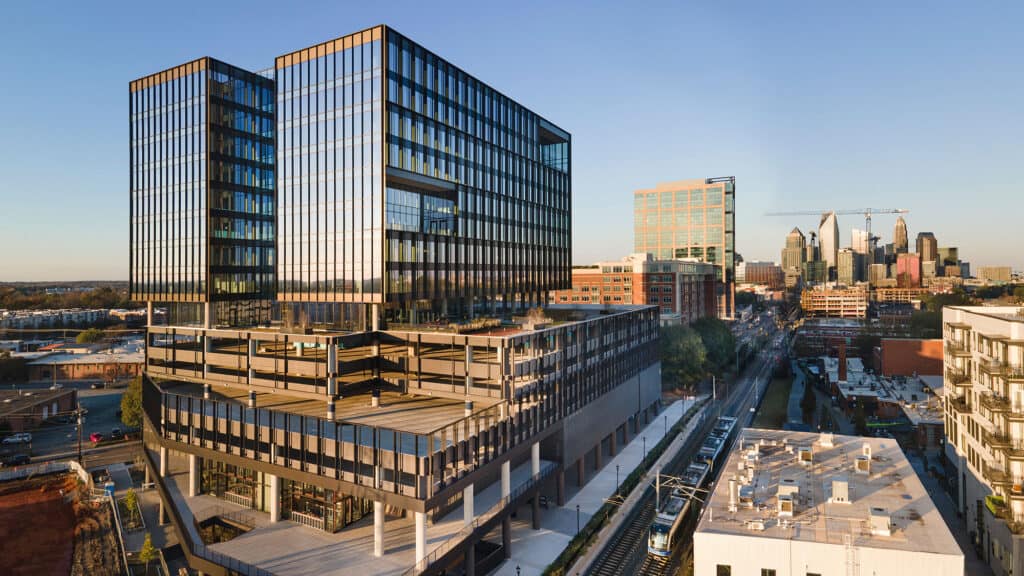In the Arab world, real estate markets have traditionally drawn a clear line between residential and commercial property dealings. However, as cities expand and investment patterns evolve, the lines between these sectors are beginning to blur. Increasingly, brokers and investors are exploring the potential of using residential Multiple Listing Services (MLS) platforms to broker certain types of commercial deals.
MLS platforms—centralized databases where real estate brokers share listings and coordinate sales—have historically been divided by property type. Residential MLS systems focus on homes, apartments, and residential complexes, while commercial MLS platforms handle offices, retail spaces, warehouses, and other commercial assets. Yet, the rapid growth of mixed-use developments and small-scale commercial properties has created scenarios where residential MLS can play a surprising role in brokering commercial transactions.
This article explores the opportunities, challenges, and practical considerations of brokering commercial deals using residential MLS systems, with a focus on Arab countries. We will explain the types of commercial properties that may fit residential MLS, the advantages and risks of this approach, and tips for brokers seeking to expand their reach in a changing market.
Understanding MLS and Its Traditional Role
A Multiple Listing Service is a cooperative platform that allows licensed real estate brokers to list properties they want to sell or lease. The system is designed to increase market transparency, reduce duplication of listings, and facilitate cooperation between brokers for faster, more efficient transactions.
In most countries, MLS platforms are specialized by property type. Residential MLS systems generally include:
- Single-family homes
- Condominiums and apartments
- Townhouses
- Residential plots and villas
Commercial MLS platforms, on the other hand, typically cover:
- Office buildings and suites
- Retail shops and malls
- Warehouses and industrial facilities
- Hotels and hospitality assets
- Mixed-use developments with commercial spaces
This division helps brokers specialize and clients find listings relevant to their needs.
The Emerging Overlap Between Residential and Commercial Markets
In Arab countries, the urban landscape is evolving rapidly, and with it, the real estate market. One of the key trends is the rise of mixed-use developments—large projects that combine residential, retail, office, and leisure spaces into integrated complexes. Examples include Dubai’s Downtown area, Riyadh’s King Abdullah Financial District, and Cairo’s New Administrative Capital.

These mixed-use projects often blur the line between residential and commercial property. For instance, ground floors of residential towers may contain retail shops or cafés, or entire floors may be leased as office space within a residential building.
In such cases, commercial units within predominantly residential developments may be listed in residential MLS systems, as the property is primarily considered residential. This creates an opportunity for brokers who traditionally deal with residential properties to expand into small-scale commercial leasing or sales, using the same MLS infrastructure.
Types of Commercial Deals Suitable for Residential MLS
Not all commercial properties are appropriate for listing in residential MLS systems. However, certain types of commercial real estate often fit naturally within or alongside residential markets. These include:
- Retail shops and cafes located within residential complexes: Small commercial units at the street level of residential buildings serve residents and visitors, making them complementary to the residential environment.
- Home offices and professional suites: In some cases, especially in free zones or mixed-use zones in Arab countries, residential units can be legally used for professional purposes such as consulting, legal advice, or IT services.
- Small-scale clinics or medical offices: These often appear in residential neighborhoods, providing accessible healthcare services close to where people live.
- Daycare centers and educational facilities: Located within residential communities, these serve families and create demand for leasing or sales via residential MLS.
- Multi-purpose units in new developments: Some developers offer flexible units that can be converted between residential and commercial uses, depending on market demand.
By listing such units on residential MLS platforms, brokers can leverage the existing network and buyer pool already familiar with those systems.
Advantages of Using Residential MLS for Commercial Deals
There are several benefits to brokering commercial deals through residential MLS platforms, especially in Arab markets where residential real estate has traditionally dominated MLS activity.
Expanded Market Reach
Residential MLS platforms tend to have a larger user base, including buyers and tenants who might be interested in commercial spaces adjacent to their homes or communities. This can increase exposure for commercial units that serve residents directly, such as shops, offices, or clinics.
Simplified Listing Process
Since residential MLS systems are often more user-friendly and familiar to brokers and agents, listing commercial units that fit within residential environments can be quicker and easier than navigating complex commercial MLS systems that require specialized knowledge.
Leveraging Existing Relationships
Many brokers in Arab countries focus primarily on residential properties but develop strong networks of buyers and tenants. These brokers can introduce clients to commercial opportunities within residential developments without needing to switch platforms or acquire commercial real estate expertise immediately.
Cost Efficiency
In some regions, commercial MLS platforms charge higher fees or have more stringent listing requirements. Residential MLS platforms may offer more accessible terms, lowering the barrier to marketing commercial spaces embedded in residential buildings.
Challenges and Limitations
Despite the benefits, brokering commercial deals via residential MLS is not without risks and limitations.
Lack of Commercial-Specific Data
Residential MLS platforms typically lack fields for key commercial leasing or sale information, such as detailed lease terms, tenant turnover schedules, net operating income, or commercial zoning classifications. This can make listings less informative for commercial investors or tenants who require more granular data.
Legal and Regulatory Differences
Commercial real estate transactions often involve different legal frameworks, tax treatments, and contract structures than residential deals. Residential MLS systems are not always designed to capture or comply with these nuances, potentially exposing brokers and clients to legal risks.
Valuation and Financing Complexities
Commercial properties are valued differently from residential units. For example, income capitalization methods and business operational data matter for commercial properties but are usually outside the scope of residential MLS data. Brokers may find it harder to provide accurate market valuations using residential MLS tools.
Market Perception
Investors and commercial tenants might perceive residential MLS listings as less professional or less reliable for commercial property searches, especially for larger or standalone commercial assets. This perception can limit the effectiveness of residential MLS platforms in attracting serious commercial clients.
Practical Tips for Brokers Using Residential MLS to Broker Commercial Deals
To successfully broker commercial deals using residential MLS platforms, agents should consider the following practical advice:
Educate Clients on Property Use and Restrictions
Because some commercial units within residential developments may have special use restrictions, it is essential to communicate permitted uses, licensing requirements, and zoning rules to potential buyers or tenants. This avoids misunderstandings and supports smooth transactions.
Include Detailed Descriptions and Photos
Since residential MLS systems may lack commercial-specific data fields, brokers should use narrative descriptions and high-quality photos to highlight important commercial features such as separate entrances, signage rights, parking availability, and suitability for business operations.
Collaborate with Commercial Experts
When handling more complex commercial leases or sales, residential brokers should collaborate with commercial real estate experts or legal consultants who can advise on contracts, tax implications, and tenant rights specific to commercial properties.
Leverage Mixed-Use Development Opportunities
Brokers should target mixed-use developments that blend residential and commercial units and educate their clients on the advantages of such integrated communities. This approach helps position the commercial units as part of a vibrant, ready market.
Use Additional Marketing Channels
To complement residential MLS listings, brokers can use social media, specialized commercial property websites, and real estate expos or forums targeting investors and business tenants.
Case Study: Dubai’s Mixed-Use Developments
Dubai, known for its innovation in real estate, offers many examples of commercial units within residential developments listed on residential MLS platforms. For example, in neighborhoods like Dubai Marina and Jumeirah Lake Towers, brokers frequently list retail outlets, cafés, and small offices located in residential towers on the same MLS platforms used for apartments and villas.
These listings attract a diverse audience—from residents seeking convenient services near their homes to entrepreneurs looking for accessible business locations. Brokers working on these listings benefit from the extensive reach of Dubai’s well-established residential MLS ecosystem while tapping into the vibrant commercial leasing market.
The success of these practices in Dubai serves as a model for other Arab cities seeking to bridge residential and commercial real estate markets efficiently.
The Future Outlook: Integration and Specialization
The real estate industry in Arab countries is moving towards greater integration between residential and commercial markets, especially in urban centers with a growing demand for mixed-use environments.
MLS platforms are evolving accordingly. We can expect more sophisticated systems that blend residential and commercial listing capabilities while maintaining specialized data fields and search tools tailored to each property type. Such platforms will allow brokers to manage and market multi-use developments seamlessly, providing clients with a comprehensive view of available properties.
Additionally, artificial intelligence and data analytics may enable smarter matching of tenants and buyers with units that meet both residential lifestyle and commercial business needs.
For brokers, embracing these hybrid MLS tools will be key to staying competitive in the rapidly changing Arab real estate landscape.
Conclusion
Brokering commercial deals using residential MLS platforms presents both opportunities and challenges in Arab real estate markets. While not suitable for all types of commercial properties, residential MLS systems can effectively serve commercial units embedded within residential and mixed-use developments.
For brokers, leveraging residential MLS to market these commercial spaces expands their service offerings, broadens market reach, and taps into growing demand in integrated urban communities. However, success requires understanding the legal, financial, and operational differences of commercial real estate and adapting marketing and client education strategies accordingly.
As Arab cities continue to grow and evolve, the lines between residential and commercial real estate will increasingly overlap. Advanced MLS platforms that support this integration will be instrumental in unlocking new opportunities for brokers, investors, and tenants alike.













